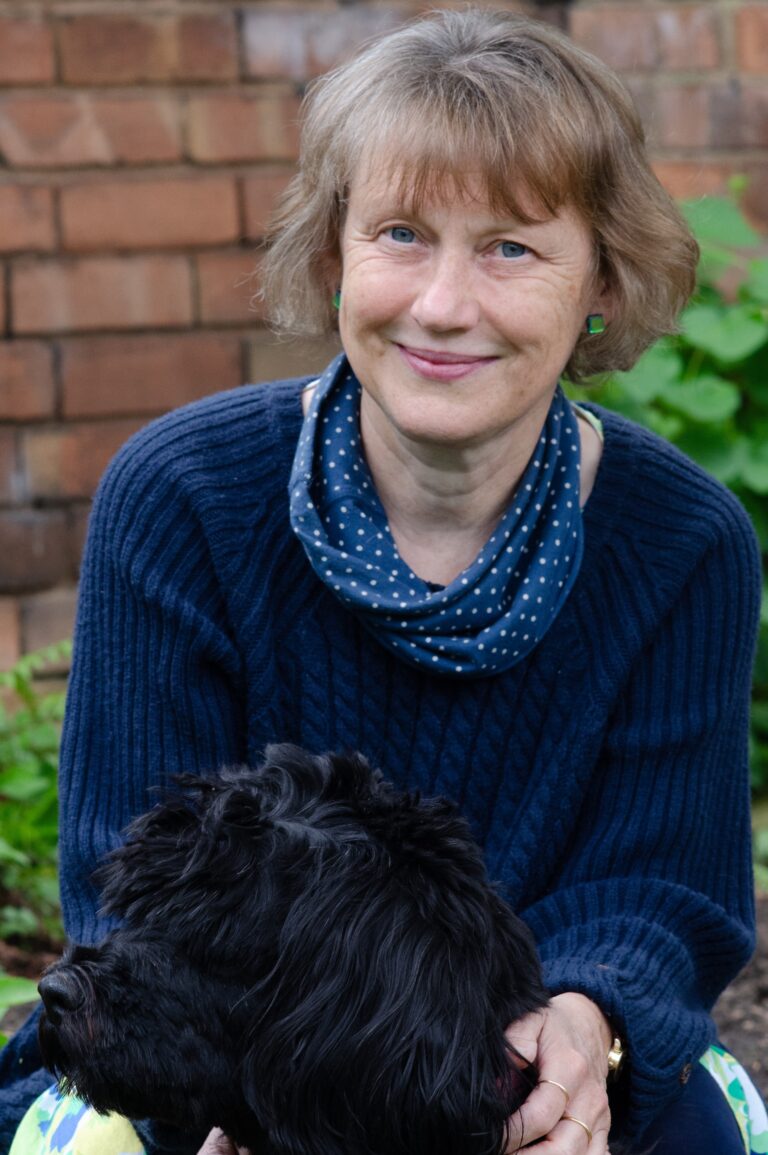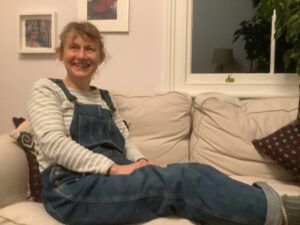
Meg's Approach
Having originally trained in Person-Centred Counselling and Cognitive Behavioural Therapy, I now take a bespoke approach to each client, drawing deeply on the principles of Cognitive Behavioural Therapy and related therapeutic models such as Acceptance and Commitment Therapy, Positive Psychology and Logotherapy as appropriate. I also use creative approaches and am trained to work in Sand Tray, Small World therapy and Animal Assisted Therapy. I am a keen walker and have recently started offering 'Walk and Talk Therapy'.
Methods
Cognitive Behavioral Therapy (CBT)
CBT is, as its name suggests, based on the theory that our cognitions or thoughts, affect our feelings and our feelings affect our behaviour. In therapy, you will be asked to give your thoughts close attention so that you begin to see how they and your habitual patterns of thinking, affect how you feel and behave. In CBT you will usually be given a ‘home task’ to work on between sessions. CBT is well-known for being a therapy where ‘strategies’ can be implemented to help wellbeing to improve. It has been shown to be especially effective for anxiety, depression and OCD but can have an useful role to play in the healing of almost any mental health condition.
Person-Centered Therapy
The person-centred approach is very different from CBT. In CBT the therapist will establish with the client an agenda for each session, whereas in person-centred therapy, the therapist will follow the client’s lead. There will be great emphasis on listening, summarising what you say and reflecting it back. You may wonder how this can combine with CBT! My approach is rooted in the core conditions of the person-centred approach. These are that the therapist will provide the client with a space in which they receive:
- unconditional positive regard
- empathy
- congruence (ie. that the therapist will be authentic and genuine in relating to their client)
Sometimes CBT becomes reduced to a ‘one-size fits all’ sequence of exercises. This is not my approach. Because my approach is underpinned by the person-centred core conditions, my aim is to ensure that my use of CBT is client-centred and tailored to each client’s issues.
Positive Psychology
This is a relatively new therapeutic approach and is based on the principle that it is helpful to study those who are mentally well as well as those who have problems, in order to find ways to help clients. It is, therefore, like CBT, very practical and involves the client in strategies and life-style changes in order to improve and maintain their wellbeing. If you have listened to ‘The Happiness Half-Hour’ podcast from Radio 4, it is mostly based on the principles of Positive Psychology.
Acceptance and Commitment Therapy (ACT)
This is essentially, a development of CBT. One criticism of CBT is that it can be enormously difficult to identify the thinking that is troubling us and, even if we can, to adapt or change it. A danger can be to try to resist a particular way of thinking and that can lead to it persisting! In ACT, there is a great emphasis on learning to accept our feelings and to commit to our values, whilst learning how to diffuse troubling thoughts, live in the moment, observe and understand our reactions. Again, it is a therapy which is highly practical and introduces methods and techniques to help us.
Logotherapy
This is the therapy devised and practised by Viktor Frankl, the famous Auschwitz survivor and writer of the classic ‘Man’s Search for Meaning.’
A key principle is that much depends on our attitude. As Frankl writes:
‘Everything can be taken from a man but one thing: the last of the human freedoms – to choose one’s attitude in any given set of circumstances, to choose one’s own way.’
As you might expect, an important thread of the therapy is in searching for meaning in life.
If you have read ‘The Choice’ or ‘The Gift’ by Dr Edith Eger, she was a colleague of Viktor Frankl and she too practised logotherapy.
Sand Tray and Small World Therapy
These are very different therapies from anything discussed so far in that they aim to get past our conscious thoughts and into the subconscious. Clients are presented with a wide array of small props – people, animals, vehicles, buildings, natural objects, random odds and ends. In Sand Tray work, the client is asked to create a ‘picture’ using them, in a tray of sand (which they also use to build with if they want to) – and then will be asked to talk about it. The therapist will not interpret but will listen and perhaps prompt or ask questions. It can be a completely astounding process for both client and therapist. It is particularly useful when issues are very hard to talk about.
Small World is similar but there is no tray of sand! In this therapy, the therapist may ask the client to arrange the props in particular ways, in order to explore their issues. This can be particularly useful when exploring matters such as family dynamics.
Neither of these therapies should be confused with Jungian Sand Play therapy which has some subtle differences.
Animal Assisted Therapy
In my work in school, I am often accompanied by my Portuguese Water Dog, Rosa. She offers a homely presence which often breaks the ice for young people. The presence of an animal is known to be good for well-being and stroking one can reduce stress and release endorphin. In Animal Assisted Therapy, however, we also consider how the client relates to the animal and vice versa. It is another method that can reveal material that is unconscious.
Small World is similar but there is no tray of sand! In this therapy, the therapist may ask the client to arrange the props in particular ways, in order to explore their issues. This can be particularly useful when exploring matters such as family dynamics.
Neither of these therapies should be confused with Jungian Sand Play therapy which has some subtle differences.
Walk and Talk
It is well-established that exercise is good for our wellbeing and that walking in green spaces and spending time with plants, trees and nature, is relaxing and mood-enhancing. I am therefore very happy to leave the counselling room behind and conduct sessions whilst walking in the fresh air.
For safeguarding reasons, ‘Walk and Talk’ sessions can only be booked in daylight and walks are taken in places which are well frequented by members of the public. Strong walking shoes or wellies and waterproofs are essential.
Other creative approaches
I am very interested in and open to using other creative approaches so you may find that I suggest journalling, using art work and other crafts, using Russian Dolls, clay and Play Dough.
















